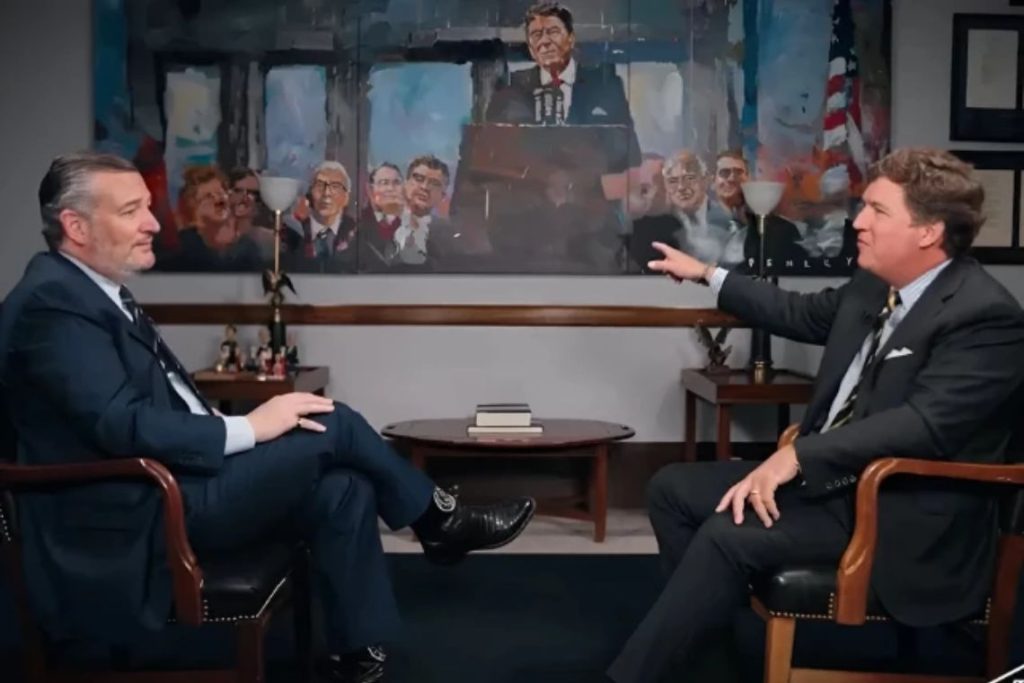During the televised interview, Carlson openly criticized the Biden administration’s support for Israeli military actions and warned against deeper American involvement in the conflict with Iran. He questioned whether continued engagement in the region serves the national interest or risks plunging the U.S. into yet another prolonged war.
“Are we defending the United States, or are we pushing for another endless war in the Middle East?” Carlson asked, expressing concern over what he described as “reckless provocation.”
Cruz Defends a Hardline Approach
Senator Ted Cruz, known for his hawkish foreign policy views, pushed back firmly. He argued that Iran’s actions pose a direct threat to U.S. allies and stability in the region, and that any signs of weakness could embolden adversaries.
“This is not about starting a war. It’s about sending a clear message to Iran and its proxies that their aggression will not be tolerated,” Cruz responded.
He further stressed that deterrence is essential to preventing future conflict, particularly as Iran continues to advance its missile and nuclear programs.
Broader Context: Middle East Tensions Rise
Political observers say the Carlson-Cruz debate reflects a larger division in American politics between traditional interventionist policies and a growing non-interventionist sentiment—especially among younger and independent voters.
Implications for South Asia
In Pakistan and other neighboring countries, analysts are closely monitoring the situation. Increased instability in Iran could have serious repercussions, including disrupted trade routes, refugee movements, and security concerns along Pakistan’s western border.
Experts also caution that oil prices could spike, affecting inflation and energy markets in developing economies, including Pakistan.


